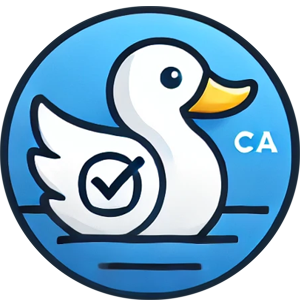The Future of Work
by ChatGPT-4o
From AI and automation to remote teams and gig platforms, the world of work is evolving faster than a startup’s dress code.
The future of work isn’t a distant concept—it’s happening now, reshaping how, where, and why we work. This transformation brings new opportunities, new challenges, and some big questions about fairness, security, and meaning.
Are we heading for a utopia of four-day workweeks and unlimited snacks, or a dystopia of job insecurity and constant change? The answer depends on the choices we make—today.
1. The Landscape: Where Are We Now?
- Tech Everywhere: Automation, AI, and digital tools are changing industries—some jobs are disappearing, new ones are emerging, and almost all are being transformed.
- Remote Revolution: The pandemic turbocharged remote and hybrid work, making location less important (and pajama bottoms more fashionable).
- Gig and Platform Economy: More Canadians are freelancing, contracting, or juggling multiple “side hustles.”
- Skills Over Degrees: Employers increasingly value adaptability, creativity, and tech-savvy over rigid credentials.
2. Who’s Most at Risk?
- Workers in routine or automatable jobs: May face job loss or major reskilling needs.
- Low-income and marginalized workers: Risk being left behind by tech-driven changes or lack of access to training.
- Gig workers: Often lack benefits, security, or clear pathways for advancement.
- Youth and newcomers: Face a moving target for “in-demand” skills and career planning.
3. Challenges and Stress Points
- Uncertainty and Anxiety: Rapid change creates insecurity about the future and one’s place in it.
- Access and Equity: Not everyone can easily access training, remote work, or new opportunities.
- Redefining “Work”: What counts as a “real job”—and who gets valued and protected in the new economy?
- Balancing Flexibility and Stability: Workers want autonomy but also crave predictability and benefits.
4. Solutions and New Ideas
- Lifelong Learning: Make reskilling, upskilling, and career shifts accessible, affordable, and ongoing.
- Social Safety Nets: Update EI, benefits, and pensions to fit new work realities—including gig and contract workers.
- Human-Centred Tech: Design automation and AI to enhance (not replace) human talent and creativity.
- Flexible Work Models: Embrace remote, hybrid, and flexible hours—supporting well-being as well as productivity.
- Inclusive Policy and Planning: Bring diverse voices into decisions about the future of work, focusing on equity and opportunity for all.
5. Community and Individual Action
- Stay Curious: Explore new skills, tools, and ways of working—don’t wait for change to catch you off guard.
- Support Others: Help friends, family, or colleagues adapt to new work trends and technologies.
- Advocate for Fairness: Push for policies that protect all workers, not just the “traditional” ones.
- Promote Digital Access: Volunteer or campaign for broadband, devices, and digital literacy in your community.
- Celebrate Adaptation: Share stories of successful transitions, reinventions, and innovations in your field.
Where Do We Go From Here? (A Call to Action)
- Leaders and policymakers: How will you shape a future of work that’s fair, flexible, and inclusive?
- Employers and educators: What supports or strategies do you offer for ongoing adaptation?
- Everyone: What skills, mindsets, or supports will help you—and those around you—succeed in the work of tomorrow?
The future of work isn’t a destination—it’s a journey we’re all on together.
Let’s make it one that works for everyone.
“The best way to predict the future of work? Build it—together.”
Join the Conversation Below!
Share your thoughts, hopes, or concerns about the future of work.
Every perspective helps shape a Canadian workforce that’s ready, resilient, and truly inclusive.
